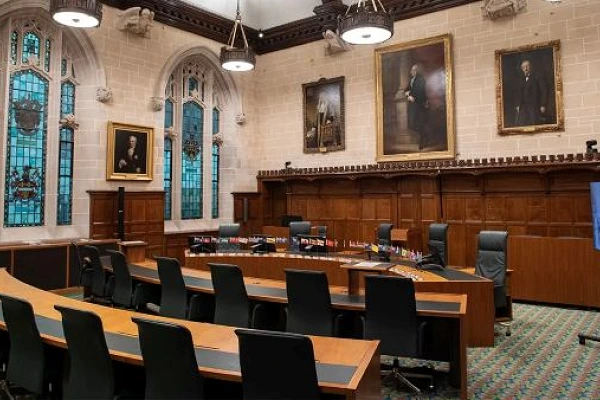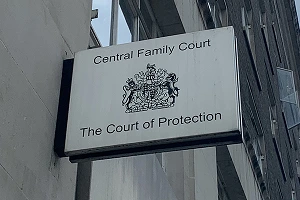
Transparency and the scope of PD12R FPR 2010
Edward Lamb KC and Tara Vindis set out the key points from a care proceedings case concerning transparency and the scope of PD12R FPR 2010.
January 30, 2026
Transparency and the scope of PD12R FPR 2010
News
Features

The Mental Health Act 2025: key changes
January 22, 2026
Rebecca Fitzpatrick and Katie Viggers set out the key changes in the Mental Health Act 2025, which received royal assent last month.

The End of “Cheshire West”? Deprivation of Liberty, Consent and Capacity in the Supreme Court
October 30, 2025
Brett Davies looks at the issues under consideration at the Supreme Court’s recent hearing on deprivations of liberty and its landmark 2014 judgment.

The Welsh Language and the Court of Protection
October 17, 2025
The first Court of Protection judgment to be published in the Welsh language is, hopefully, the first of many, write Daniel Taylor and Teagan Thomas-Walters.

Revisiting Cheshire West
October 10, 2025
Later this month the Supreme Court will examine issues raised in its landmark Cheshire West ruling on deprivations of liberty. Lucy Series sets out what is at stake.

Transparency in the Court of Protection
Oct 03, 2025

How AI could rewrite homelessness law
Oct 02, 2025

Mental health tribunals and 11(7) representatives
Aug 01, 2025
PFI – a new era?
Jul 11, 2025
PFI - A New Era?
Jul 03, 2025
The final say
Jun 19, 2025
Abbasi and Haastrup: to name or not to name
May 02, 2025
Transfers from hospital to social care
Apr 25, 2025
Court of Protection case update: April 2025
Apr 15, 2025
Issuing proceedings in best interests cases
Mar 19, 2025
Court of Protection case law update: March 2025
Mar 19, 2025
Homelessness and health
Feb 20, 2025
Capacity, insight and professional cultures
Feb 19, 2025
Court of Protection update: February 2025
Feb 19, 2025
Providing support for children with complex needs
Dec 13, 2024
Webinars
NHS Legal Framework Webinar Series - Masterclass on NHS Continuing Care for Adults and Children
This webinar will examine some of the legal issues that practitioners in Healthcare Law commonly encounter.
Sponsored articles
How Finders International Supports Council Officers
Councils across the UK face a growing number of complex cases involving deceased individuals with no known next of kin, unclaimed estates,…
How hair strand testing should be instructed for family court proceedings
For years, FTS, a drug, alcohol and DNA lab in Yorkshire, has been advocating for an end to the use of Society of Hair Testing (SoHT)…



















































